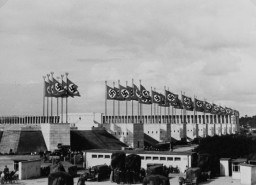You searched for: ban%20tin%20b%C3%B3ng%20%C4%91%C3%A1%E3%80%900242.com%E3%80%91b%C3%B2ng%20%C4%91%C3%A1%20tr%E1%BB%B1c%20tuy%E1%BA%BFn
<< Previous | Displaying results 401-410 of 448 for "ban%20tin%20b%C3%B3ng%20%C4%91%C3%A1%E3%80%900242.com%E3%80%91b%C3%B2ng%20%C4%91%C3%A1%20tr%E1%BB%B1c%20tuy%E1%BA%BFn" | Next >>
-
Ruth Warter
ID CardRuth lived in Uzliekniai, a village in the Memelland, a region in southwestern Lithuania ruled by Germany until 1919. An avid reader, Ruth was distressed by news of postwar political turmoil. In 1923, when Uzliekniai became part of Lithuania, she joined the Jehovah's Witnesses. She married Eduard Warter, another Jehovah's Witness, in 1928. They had four children over the next five years. 1933-39: Ruth was busy raising her children and making sure they did their Bible studies. On March 22, 1939, the German…
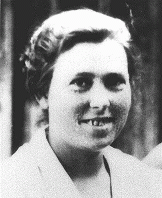
-
Johanna Niedermeier Buchner
ID CardJohanna was born in Vienna when it was still the capital of the Austro-Hungarian Empire. Her Christian family experienced the disruption resulting from the empire's collapse, as well as the instability of the Austrian republic. The depression of 1929 hit Vienna especially hard. In 1931 Johanna became a Jehovah's Witness. 1933-39: Johanna traveled constantly in and out of Austria distributing our Jehovah's Witness literature. In March 1938 Germany annexed Austria and her family was subjected to Nazi law;…
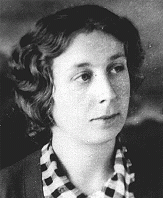
-
Ernst Reiter
ID CardErnst was an only child born to atheist parents in southern Austria during the middle of World War I. Raised in Austria's second largest city, he loved the outdoors, especially skiing in the Alps. In the early 1930s Ernst became a Jehovah's Witness. Although Austria was then in a deep economic depression, he was fortunate to find a job as a sales clerk in a grocery store. 1933-39: Austria's Catholic government was hostile towards Jehovah's Witnesses. When the Germans annexed Austria in March 1938, their…
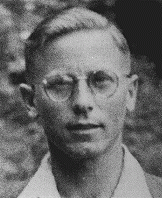
-
Lucie Kupefer Munzer
ID CardLucie was born to Jewish parents living in Gera, a medieval German city on the banks of the Elster River in the Thuringer Forest. Gera was well known for its manufacture of Leica cameras, for its publishing houses, and for the extensive collection of Gobelin tapestries in one of its museums. 1933-39: A few weeks ago, Lucie married Hans Munzer here, in Paris. Hans fled Germany last year because the Nazis began rounding up and imprisoning socialists, and as a district supervisor for the Social Democratic…
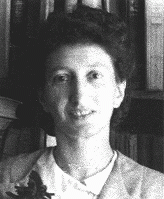
-
Zofia Yamaika
ID CardZofia was raised in a well-to-do, prominent Hasidic Jewish family in Warsaw. Uneasy with the constant tension between the Polish people and the Jewish minority, Zofia joined the communist student club Spartacus when she was a teenager. Spartacus actively campaigned against the growing fascist movement in Europe. 1933-39: When Warsaw surrendered to the Germans on September 28, 1939, Zofia was 14 years old. She stopped going to school. Though the Nazis banned Spartacus, she secretly helped to revive the…
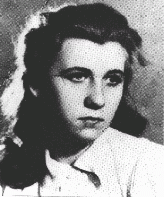
-
Nazi Racism
ArticleNazi racism and racial antisemitism ultimately led to mass murder and genocide. Learn more about Nazi racial ideology.
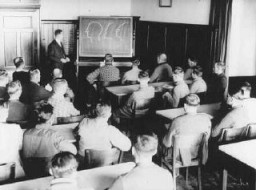
-
Edith Riemer
ID CardHela Pinsker and Elimelech Riemer were married in 1928. Two years later the Jewish couple's only child, Edith, was born. The Riemers lived in a comfortable apartment in Berlin, in a building that also housed offices of the Communist Party of Germany. 1933-39: Hitler banned the Communists, so their offices in Edith's building were shut down. When these offices were later broken into, the Gestapo blamed it on "the Jews." Though Edith's family wasn't involved, the Gestapo said that if the culprit was not…
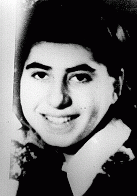
-
Léon Degrelle
ArticleLéon Degrelle was an extreme right-wing Belgian politician and Nazi collaborator. After the war, he continued to spread pro-Nazi propaganda for decades. Learn more.
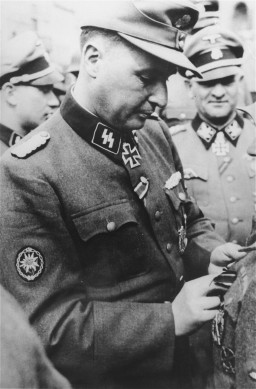
-
World War I: Treaties and Reparations
ArticleAfter the devastation of WWI, the victorious western powers imposed a series of treaties upon the defeated nations. Learn about the treaties and their impact.
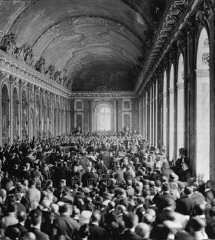
-
Culture in the Third Reich: Disseminating the Nazi Worldview
ArticleIn Nazi Germany, a chief role of culture was to disseminate the Nazi worldview. Arts and cultural organizations were to be synchronized with Nazi ideology and policy.
